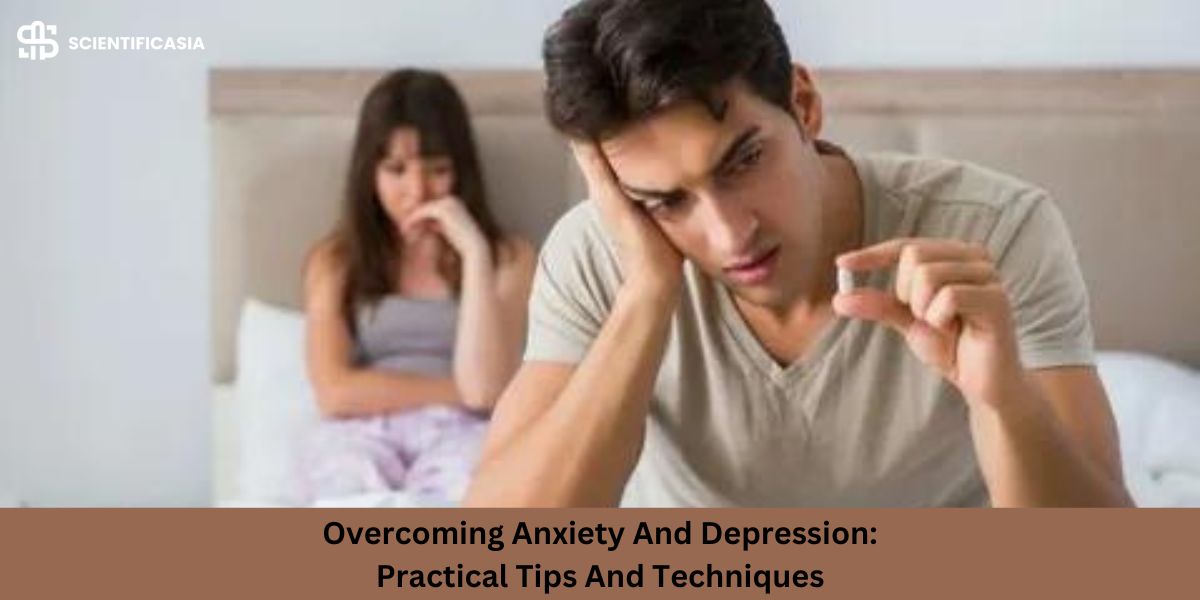Depression is characterized by bleak, persistent feelings of sadness, hopelessness, and loss of interest or pleasure in normally enjoyable things. On the other hand, anxiety is characterized by persistent feelings of concern, fear, or worry, which are annoyingly disturbing and impair basic functioning. Depression and/or anxiety disorders could affect important areas of a person’s life, such as work, social and physical health. They can be manifested in physical, emotional, and cognitive ways.
Seeking Professional Support:
One of the most critical steps to healing from anxiety and depression is professional help. Therapists and counselors, also known as mental health specialists, are going to provide much-needed direction and affirmation via evidence-based therapies designed in consideration of the diverse needs of the patients. Therapy modalities are available, such as CBT, mindfulness-based therapies, and medication management.
Developing Coping Strategies:
This is because, besides professional help, other coping strategies form a backbone for managing anxiety and depression. It will enable one to navigate difficult emotions and life challenges in a better way. The following are some of the coping strategies:
1. Mindfulness and Meditation:
Mindfulness and meditation lead to a greater awareness of the present moment and reduced rumination and anxiety. Commit to a daily amount of time where you will do mindfulness and meditation, like a 20-minute guided body scan or focused breathing.
2. Relaxation Techniques:
Practice deep breathing, progressive muscle relaxation, and guided imagery daily to increase relaxation. Effective Breathwork techniques, such as controlled breathing exercises, can provide additional stress relief. You should feel more comfortable and less stressed with the help of such techniques. To increase relaxation, practice deep breathing, progressive muscle relaxation, and guided imagery daily.
3. Physical Activity:
Moderate physical activity promotes mood enhancement and a reduction in feelings of despair and anxiety. Try to get moderate exercise most days of the week—that is, at least 30 minutes of something you enjoy, be it walking, doing yoga, swimming, or dancing.
4. Healthy Lifestyle Habits:
Stick to a correct and healthy dietary pattern, get enough rest, and limit the consumption of caffeine and alcohol, as the above significantly affects a person’s mood and overall state of well-being.
5. Social Support:
Reach out to whoever might help you through it: a close relative, friend, or support group. Be vulnerable with people, sharing your struggles and depending on them for help when in need.
6. Setting Realistic Goals:
Break it down into small steps and keep your goals accomplished. Greet with open arms each little victory as it comes, and go easy on yourself if setbacks happen.
7. Establishing Routine:
Create a daily personal timetable with scheduled activities and personal care practices in order to have a sense of purpose and structure in life, thereby reducing the feeling of being overwhelmed and experiencing stability.
8. Creative Outlets:
Develop creative activities that can boost and lift the spirit. Creative activities, such as drawing, writing, gardening, and playing sound, can provide purpose and delight in expression, thus potentially distracting one from negative thoughts and emotions.
9. Limiting Screen Time:
Too much time spent on screens, in particular on social media, only amplifies the feelings of increased anxiety and depression. Be sure to set good boundaries around the use of your screens and, even better, take regular breaks from electronic devices to do activities that are much more rewarding.
10. Gratitude Practice:
A practice of gratitude can shift your perspective into a more balanced well-being. This way, take a few moments every day to think about something you are grateful for a friend who supports you, a good cup of coffee, a beautiful sunset. Keeping a gratitude journal will entrench this as a practice and remind you of silver linings throughout your life, even in the toughest of times.
Challenge Negative Thoughts:
Very often, negative thought patterns are set as the basic premise that gives rise to anxiety and depression. This is where the value lies in learning how to challenge and reframe such patterns. Use techniques like cognitive restructuring to identify and replace alternative thoughts that are either irrational or distorted with more balanced and realistic ones. Keep a thought diary to monitor negative thoughts and their triggers, and challenge them using evidence-based reasoning.
Practising Self-Compassion:
Cultivate some self-compassion to help get past the anxiety and depression, particularly when things get really, really tough. Do things that help your mind, body, and soul, such as a nature walk, writing in your journal, painting pictures, or another creative outlet. Also, remember that you can ask for help and put your health first.
Conclusion:
Anxiety and depression are things to be overcome, a journey better traveled with patience, perseverance, and the support of someone who understands your plight. Problems such as impotence, which may be a symptom of an underlying mental health disease, such as anxiety or depression, are better treated by professionals. However, it could be helpful to get professional support in issues related to erectile dysfunction, which might be a result of depression or anxiety. But first and foremost, believe that you are supported and that the best is coming. Remind yourself that you are not alone and you are not lost in this entire world. Take each day as it comes, and do not let a day pass without seeking help when you need it. You deserve to live a peaceful, joyful, and fulfilled life.
















